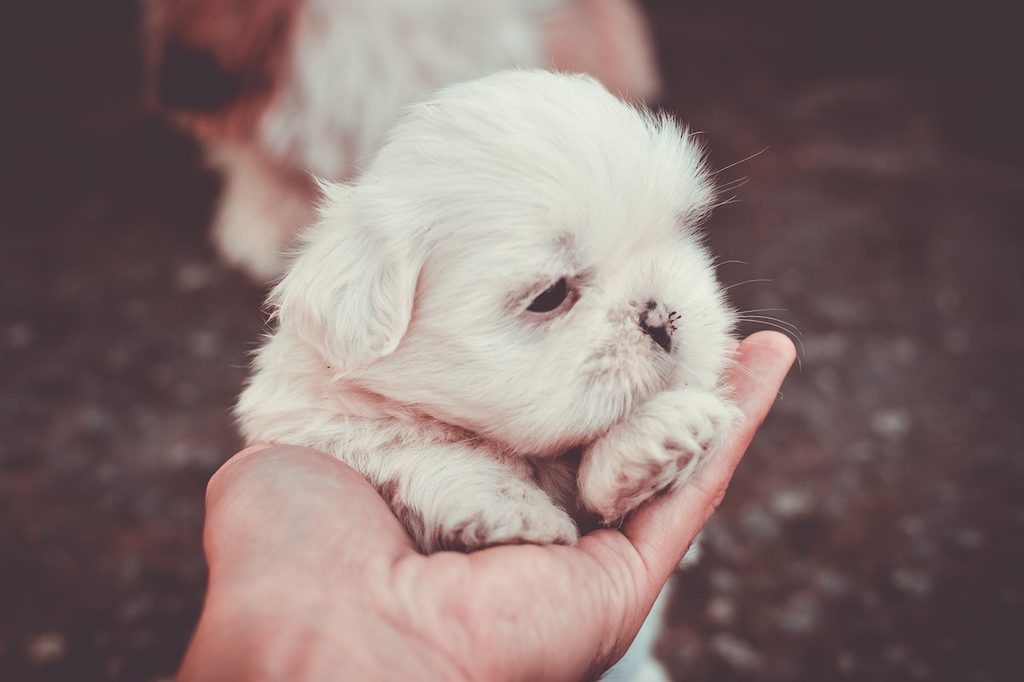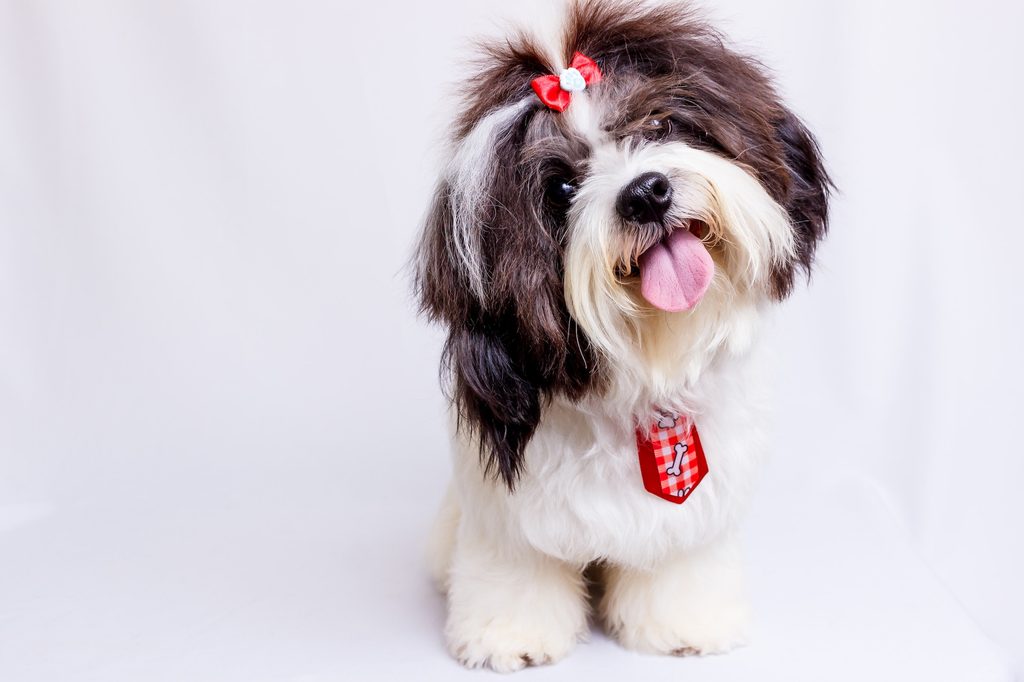Shih Tzu dogs are as cute as can be — physically and socially. The small, happy pups are loved for their friendly, affectionate personalities. If you’re looking for a small breed pup that’s an adaptable dog, it’s worth looking into booking a meet-and-greet with a Shih Tzu.
Still, it’s important to go in with eyes wide open. These small pups have a knack for charming nearly everyone in the room, but they’re not the best breed for every home. Doing your homework and researching several breeds will help you find the best fit for your household. Though every Shih Tzu is unique, consider this guide a good place to start your research.

The history of the Shih Tzu dog
The Shih Tzu may be a cute and tiny furball without the same proud stance as a Lab or Great Dane. However, these lovable little ones have a rich — and royal — history that dates back centuries. The Lhasa apso is likely the Shih Tzu dog’s ancestor. The first Shih Tzu was probably born in the Imperial Palace, and many of their descendants sat atop emperors’ laps. In fact, emperors loved the Shih Tzu so much that they kept them under wraps until the 1930s, when they were imported to Europe for the first time.
The American Kennel Club (AKC) recognized the Shih Tzu as a toy breed in 1969.

A guide to keeping your Shih Tzu happy
Are Shih Tzus good family pets? How long do they live? How big do they get? Researching potential pets can get overwhelming. Allow us to help.
Physical characteristics of Shih Tzus
Purebred Shih Tzus have similar physical traits in accordance with breed standards, including:
Height: 9 to 10.5 inches
Weight: 9 to 16 pounds
Coat: Long double coats that can come in numerous colors, including black, white, and brindle
Common health conditions
Shih Tzus have one of the longer life spans for dogs and typically live between 10 and 18 years. If you’re looking for a long-time best friend, a Shih Tzu makes an excellent choice. Still, like all pets, these dogs can have health issues. Some common health conditions of Shih Tzus include:
- Heart disease
- Patellar luxation (a knee problem that’s often inherited)
- Breathing issues
- Skin sensitivity
- Cataracts
- Dry eye
- Renal dysplasia (typically inherited and the result of kidneys that don’t develop properly)
Your Shih Tzu’s veterinarian can help you stay on top of potential health issues. There are some ways you can keep your pup healthy, including:
- Attending regular checkups, typically once or twice per year, for generally healthy Shih Tzu dogs and potentially more for those with chronic health conditions
- Keeping your Shih Tzu up to date on vaccines and administering monthly preventatives, like flea and tick heartworm (control the controllable)
- Ensuring your Shih Tzu eats a high-quality diet of mostly dog food with the AAFCO seal
- Limiting treats to 10% of your dog’s daily intake
- Getting out for plenty of walks — as a smaller breed, the Shih Tzu doesn’t need hours of exercise, but two daily walks and play sessions will help keep your Shih Tzu healthy and happy
- Trimming nails
- Brushing fur and checking for fleas and ticks
- Bathing regularly with dog shampoo
- Teeth brushing on a regular and frequent schedule to prevent gum disease and tooth decay
Social characteristics of the Shih Tzu
Shih Tzu dogs are some of the friendliest fur babies you’ll ever meet. They’re known for being highly affectionate, great with other animals like dogs and cats, and a good first pet for a small child. You’ll still want to monitor interactions between your pets and introduce them slowly. You’ll also want to keep an eye on small children and pets. Shih Tzus are small dogs, and a wobbly toddler can appear intimidating or catch them off guard. With time and patience, you can teach both your small child and Shih Tzu to play nice and watch a lifelong friendship develop.
Shih Tzus love their humans so much that they also make pretty good watchdogs. Expect them to serve as doorbells when strangers or the Amazon Prime delivery person come to your door. That said, they’ll typically warm up to guests.
The Shih Tzu is fairly playful with moderate energy, so they don’t require constant attention. Still, they adore their humans, so they do best in a home that can provide them with the frequent snuggles they crave. This toy breed is adaptable and eager to please, making them one of the easier dogs to train. Though the Shih Tzu tends to have a friendly demeanor, all dogs benefit from training.

Final thoughts on Shih Tzus
Remember, all pets are different, including dogs of the same breed. Shih Tzus are generally friendly, loving dogs that do well with other pets and small children. However, some Shih Tzu dogs may not fit this bill. A reputable breeder or rescue or shelter staff can help you learn more about the individual pet you’re interested in making your forever friend. You can also schedule interactions between pets to ensure it’s a good match.
Regardless of which pet you choose, being aware of common health issues, scheduling regular vet checkups, and training from a young age can help them become the best version of themselves. Your vet can provide resources on health and training and be an overall sounding board during your pet parenting journey.



